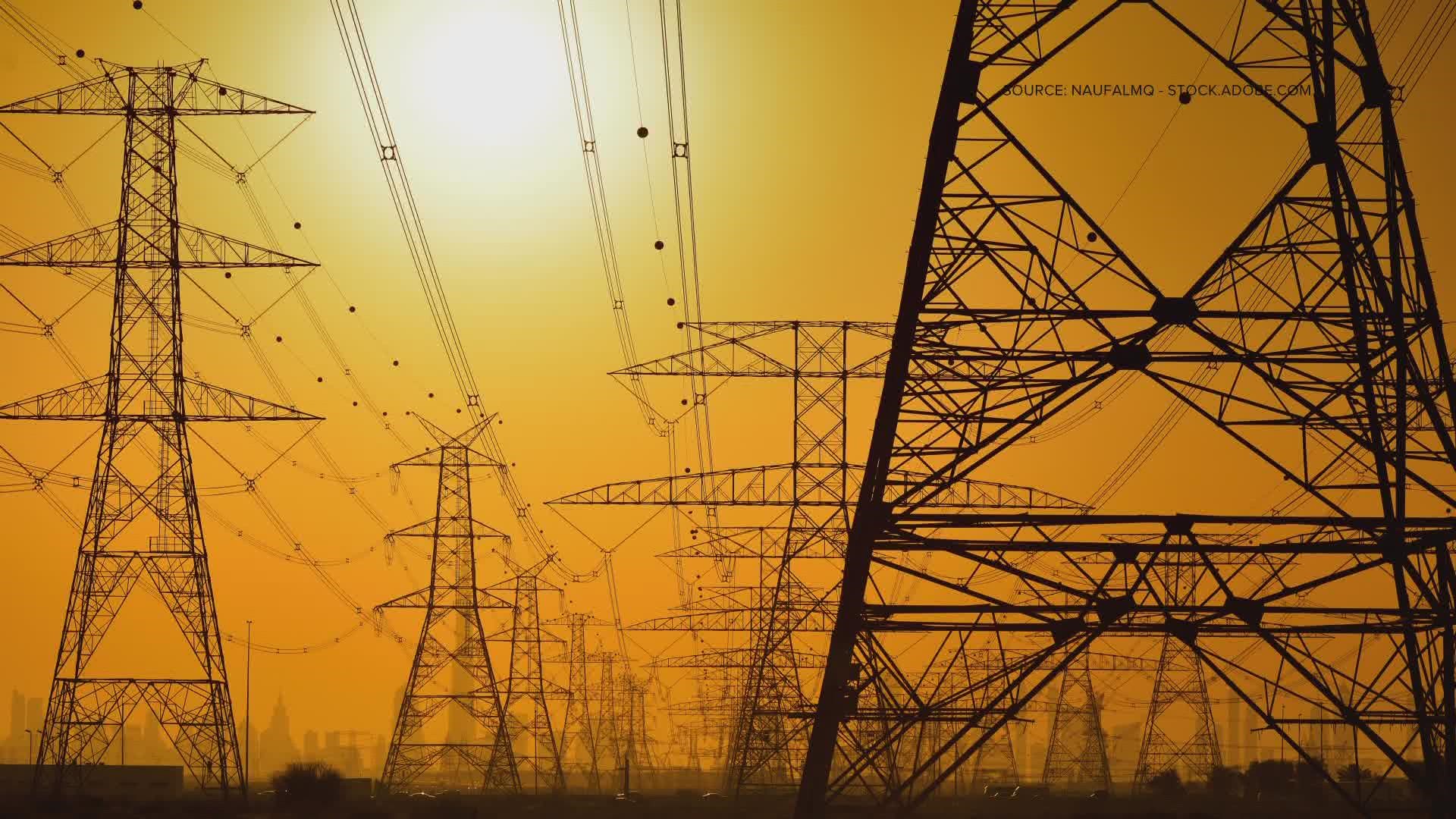GREENSBORO, N.C. — Mother Nature is turning up the heat, but is she also turning out the lights? This summer is a scorcher, and as the dog days drag on, viewer A.J. couldn't help but wonder about a correlation between the weather outside and a recent power outage at his workplace.
THE QUESTION
A.J. asked, "Is it true heat can cause power outages?"
THE SOURCES
THE ANSWER
Yes, heat can cause power outages, but the link is generally indirect, when more usage puts more strain on the system.
THE PROCESS
"Indirectly, yes," affirmed Duke Energy communications manager Jeff Brooks.
He explained, "As the heat increases, electric use goes up because of air conditioning and other types of electric use, and that puts more strain on the system. The grid is a machine, right? It's designed to work in extreme conditions...but like any piece of equipment, the hotter it gets, the less efficient it operates."
That is why, he said, lines will start to sag a bit in some cases, because heavy use and gravity are weighing down the lines.
The American Society of Civil Engineers' 2021 energy report gave the U.S. electrical grid a C- rating. The engineers warned the nation's electricity "depends on an aging and complex patchwork" of power facilities and lines.
Even if states go greener, as NC has pledged to do with "zero carbon" by 2025, grids still could have weather problems. Heat could reduce wind speeds, meaning minimal wind power, and drought could reduce water supplies for hydroelectric dams. So, Brooks said, energy companies must plan ahead.
"You think about the storms. The (Piedmont) Triad always is impacted by storms...the big ones that come through. We have to have a system that can recover quickly from those types of disruptions, and that technology, what's great about it, is also the same technology that enables the transition to cleaner energy, so we're making the grid cleaner and more resilient at the same time."
The non-profit environmental research group Climate Central found since 2000, the U.S. has experienced a 67% increase in weather-related events, and those outages have cost the economy an estimated $18- to- $33 billion a year.
Brooks acknowledged comfort is individualistic, but it takes a collective effort to preserve the grid. He suggested bumping up the AC temperature (as close to 78 as possible) and running ceiling fans in summer. Duke Energy, he confirmed, does have a contingency plan for planned outages known as "rolling blackouts," but the company never has had to implement one, and they remain a last resort.












